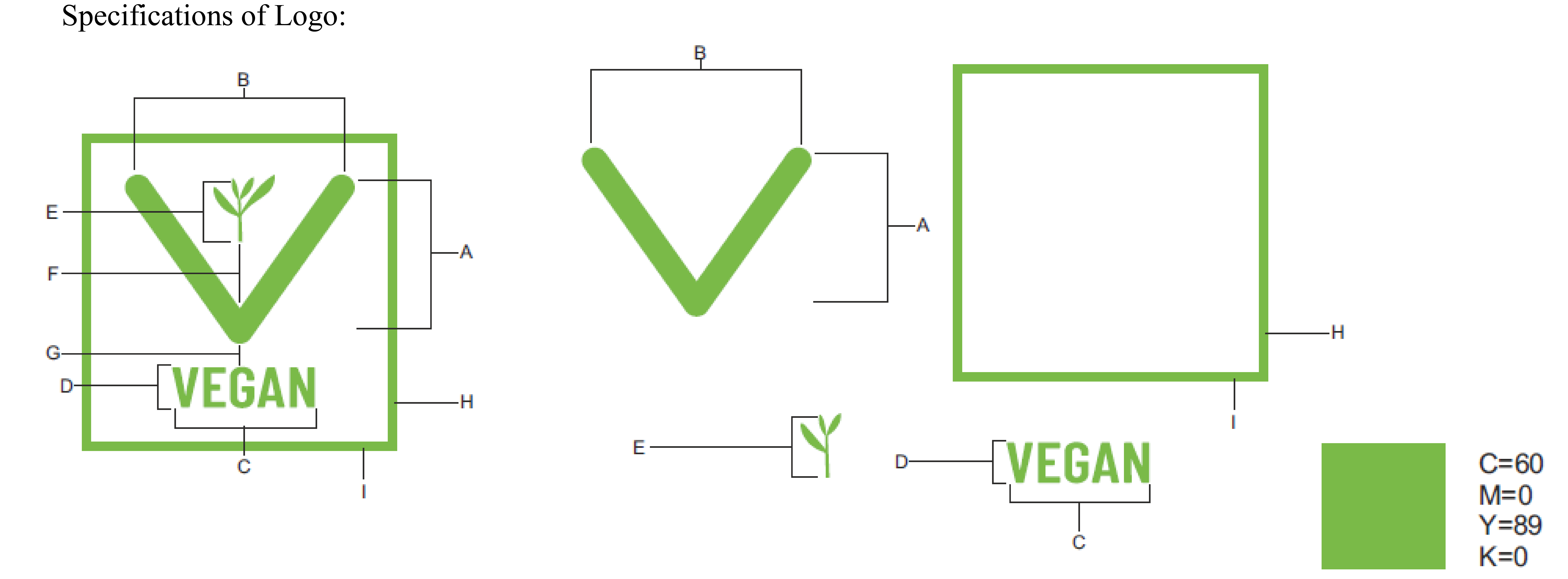The increasing awareness about the health benefits of plant-based diets, the increasing vegan population in the country, and the availability and accessibility of vegan food products are some of the major factors propelling the market.
“Vegan Food” means the food or food ingredient, including additives, flavourings, enzymes and carriers, or processing aids that are not products of animal origin and in which, at no stage of production and processing, ingredients, including additives, flavourings, enzymes and carriers, or processing aids that are of animal origin has been used. (Regulation 2 (1) (a) of the Food Safety and Standards (Vegan Foods) Regulations, 2022 read with Food Safety and Standards Act, 2006.)
Plant-Based Diversity: The diversity of India’s agriculture contributes to a wide array of plant-based foods. Staples like lentils, rice, vegetables, and spices form the basis of many vegan dishes. Regional cuisines showcase unique flavors and preparation methods, offering a vibrant and flavorful spectrum of vegan options.
Government Initiatives: The Indian government has shown interest in promoting sustainable and healthy dietary choices. Initiatives focusing on organic farming and sustainable agriculture realign with the principles of veganism. However, there is ongoing dialogue about incorporating specific policies to support the vegan food industry which has been specifies as under:
- Pradhan Mantri Kisan Sampada Yojana (PMKSY): It will provide a big boost to the growth of food processing sector in the country. It will help in providing better prices to farmers and is a big step towards doubling of farmers’ income. It will create huge employment opportunities especially in the rural areas.
- PM Formalization of Micro Food Processing Enterprises Scheme: PMFMPE is a Centrally Sponsored Scheme by the Ministry of Food Processing Industries, designed to address the challenges faced by the micro-enterprises and to tap the potential of groups and cooperatives in supporting the upgradation and formalization of these enterprises.
- Production Linked Incentive Scheme for Food Processing Industry (PLISFPI): “Production Linked Incentive Scheme for Food Processing Industry (PLISFPI)” to support creation of global food manufacturing champions commensurate with India’s natural resource endowment and support Indian brands of food products in the international markets.
Future Prospects: The future of veganism in India seems promising, with a growing number of individuals embracing plant-powered living. The continued development of vegan alternatives, coupled with increased awareness and policy support, positions veganism as a significant movement in the country’s evolving food landscape.
International Harmonization: As the Vegan Food market becomes more globalized, efforts are underway to harmonize international standards. Aligning regulations across borders facilities smoother trade and ensures that consumers worldwide can trust the safety and quality of vegan products, contributing to the overall growth of the industry.
As the global interest in veganism continues to rise, understanding the legal framework surrounding vegan food becomes crucial. In India, a country with a diverse culinary heritage, there are specific laws and regulations governing the production, labeling and distribution of vegan food products.
Current Scenario and Updated Regulation on Vegan Foods
In the dynamic world of food production and consumption, ensuring safety and adhering to standards is paramount. As veganism continues to gain momentum globally, regulators are focusing on creating and refining standards specifically tailored to the production and distribution of vegan food. In 2022, several key regulations are shaping the landscape of food safety and standards in the realm of vegan products. The Food Safety and Standards Authority of India (FSSAI) plays a central role in setting the standards for food safety in the country. In 2022, FSSAI has continued to evolve its guidelines to address the unique aspects of vegan food production. This includes stringent criteria for labeling, ensuring transparency about ingredients and allergens.
Allergen Regulations and Labelling: As the demand for vegan alternatives rises, lawmakers are refining allergen regulations. Clear identification of potential allergens in vegan products is essential to protect consumers with specific dietary restrictions. This not only enhances food safety but also ensures that individuals with allergies can confidently choose plant-based options. Recognizing the diversity of consumer dietary needs, 2022 regulations place a strong emphasis on allergen labeling. Vegan Food Producers are required to clearly identify common allergens, allowing individuals with specific dietary restrictions to make informed choices. This aligns with the broader trend in food safety to prioritize consumer well-being.
Ingredient Authentication: To maintain the integrity of vegan products, regulations are emphasizing the importance of authenticating plant-based ingredients. This involves rigorous testing and verification processes to confirm the absence of any animal-derived components. Stringent checks on cross-contamination during production are also becoming a focal point.
Vegan Certificate Program: In response to the growing demand for vegan products, certification programs have gained prominence. Organizations like the Vegan society and vegan action offer certifications that indicate a product is not only plant-based but also meets specific ethical and sustainability standards. These certifications are becoming an integral part of regulatory considerations.
Application for FSSAI Licence:
Application and document submission
Document Scrutiny
Issuance of FSSAI Licence
Documents Required for Obtaining FSSAI License:
For FSSAI basic registration, FSSAI State licenses and FSSAI Central licenses, the following documents will be required.
- Identification Proof of the owners of food businesses.
- A business registration certificate
- Land ownership proof: such as rental agreement, NOC for the rented premises, utility bills etc.
- The management system plan for food safety.
- A list of manufactured or processed food items.
- Supporting documentation (if needed), such as a copy of the manufacturer’s license, a municipal or panchayat NOC, or a health NOC.
Role of FSSAI: The Food Safety and Standards Act 2006 is the key legislation for ensuring food safety along supply chains in both domestic and international trade. Deriving its power from the Act, FSSAI performs the following functions.
- Establishing Rules and Guidelines: The FSSAI is empowered to make rules on the standards for food safety.
- Issue Food Safety License: FSSAI has the authority to issue food safety licenses and certifications for food businesses.
- Define Food Standard: The FSSAI defines the requirements and requirements for laboratories in the food industry, as well as the quality and standards of the food produced by the enterprises.
- Advise the government: FSSAI advises the government relating to food safety and potential food threats, as well as any recommendations to the government for formulating standards for food safety.
- Maintain Records and Data: FSSAI maintains records and data for all organizations registered under the FSSAI Act. The vegan food business operator may have its license terminated for breaking any of the guidelines established by the FSSAI.
Procedure: General requirements for vegan food have been laid down under Regulation 3 of the Food Safety and Standards (Vegan Foods) Regulations, 2022. These include-
- Animal testing cannot be used to develop vegan products unless permission is given by any Regulatory Authority such as FSSAI.
- The packaging material used for vegan food items must comply with the packaging regulations and be suitable for vegan foods.
- A vegan food business operator must avoid any unintended presence of non-vegan substances and ensure that All stages of production, processing and distribution are designed to take precautions in conformity with Good Manufacturing Practices (GMP).
- In case, the same production line is used for vegan and non-vegan products. GMP must be ensured for all associated machinery, equipment, utensils and surfaces.
- The operator must comply direction of FSSAI to maintain the vegan integrity of the foods, ingredients, or products.
- Labelling and Display Requirements: The vegan food business operator must store and display vegan food in a manner distinguishable from non-vegan food. Apart from that, after the approval, every package of vegan foods needs to carry the vegan logo. A separate application for Vegan logo each variant/product needs to be submitted and the same shall not be considered under single application.

In following revised guidelines are hereby provided for the purpose of applying for endorsement of vegan logo
| Annexures | Particulars | Forms |
|---|---|---|
| Annexures A | Guidelines for submission of applications for endorsement of vegan logo. | NA |
| Annexures B | Application for endorsement under FSS (Vegan Foods) Regulations, 2022 | Forms A |
| Annexures C | Approval/ Rejection for endorsement of vegan logo | Forms B |
| Annexures D | Proforma for self-declaration. | NA |
Application for Vegan Logo:
Application and Fee Submission
Document Scrutiny
Issuance of Approval
Fees for applications for vegan logo has been revised from 25000 to Rs. 10000 (excluding GST) per application irrespective of number of products.
CONCLUSION:
Veganism is still in the early stages in India and is showing a strong growth trajectory. An audience of health-conscious consumers who are very curious about the idea and are looking at more and more plant-based options in their diet. Food business operators are targeting such people as it and filling this demand with certified food business operations. Many vegan and plant-based food items are in great demand on online platforms as well, which has opened an even bigger market and is helping today’s India make that switch. As food safety issues have received much attention in India in recent years, an entrepreneur wanting to enter into the vegan food business must fulfil all the legal obligations and conform with the applicable safety standards, hygiene, and labelling standards. In order to gain the edge and reduce the timeline needed for the extensive licensing and approval process, taking the advice of experts in the field is recommended.
Disclaimer
The information provided in this article is intended for general informational purposes only and should not be construed as legal advice. The content of this article is not intended to create and receipt of it does not constitute any relationship. Readers should not act upon this information without seeking professional legal counsel.



